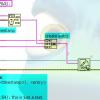-
Similar Content
-
- 4 replies
- 3,599 views
-
Potential memory corruption when (de-)serializing Sets in LabVIEW 2019 SP1 f3 (32-bit)
By LogMAN,
- flatten to string
- crash
- (and 1 more)
- 4 replies
- 5,096 views
-
- 4 replies
- 11,946 views
-
- 1 reply
- 3,483 views
-
- 0 replies
- 7,082 views
-



Recommended Posts
Join the conversation
You can post now and register later. If you have an account, sign in now to post with your account.